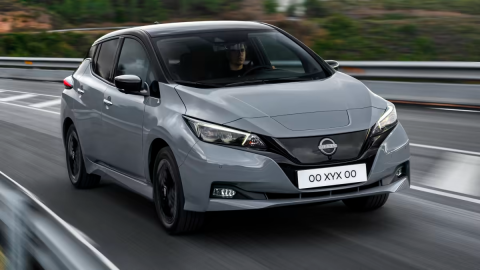Japanese automaker Nissan achieves 1,000,000 BEV sales worldwide
Japanese automobile giant Nissan Motor Company recently reached a major milestone by achieving more than 1,000,000 BEV sales worldwide since the Leaf’s entry into the market in December 2010. Undoubtedly, the aforementioned figure marks a big achievement for Nissan, but it took the company a longer time than initially anticipated. In the year of 2010, when the Leaf electric car entered the global markets, the company’s former Chief Executive Officer (CEO) Carlos Ghosn had predicted that the company would achieve 500,000 BEV sales per annum by 2013.
It is also worth-noting here that the Nissan Leaf remains the biggest contributor to the company’s BEV sales, with more than 650,000 units of the electric car sold worldwide. Stats released by the company also show that the Europe accounts for the highest number of Nissan’s electric vehicles sold worldwide over the last one and a half decade. To be more precise, Nissan sold approximately 230,000 BEVs in Japan, 210,000 in North America, 320,000 in Europe, 230,000 in China, and nearly 10,000 in other regions of the world. Thus, the company’s total BEV sales worldwide reached 1,000,000 units.
As already mentioned above, the top-selling model from the Japanese brand happens to be the Nissan Leaf, which is not surprising at all because this electric model has been offered since its launch nearly one and half decades ago. Even today, it is being offered in as many as 50 markets, including Japan, Europe, and the United States.
After excluding the Nissan Leaf’s sales from the total, we reach the conclusion that the combined cumulative sales of the company’s other electric models, including the retired Nissan e-NV200 van, the Nissan Ariya, and the all-new Nissan Townstar EV, stand at approx. 350,000 units. The Nissan Sakura received orders (cumulative) for 50,000 units.
Sales of the retired Nissan e-NV200 was at approximately 42,000 units in Europe alone as of September 2021. The launch of this electric model was first announced in the year of 2014.
The Japanese automobile brand was an early mover in terms of BEVs, but later on, lost the steam and started to slow down. As a result, it lost its early lead in the field. However, it has once again shifted its focus from internal combustion engines to electric powertrains. Under its Nissan Ambition 2030 long-term strategy, it aims to launch as many as nineteen BEVs by the end of current decade.
